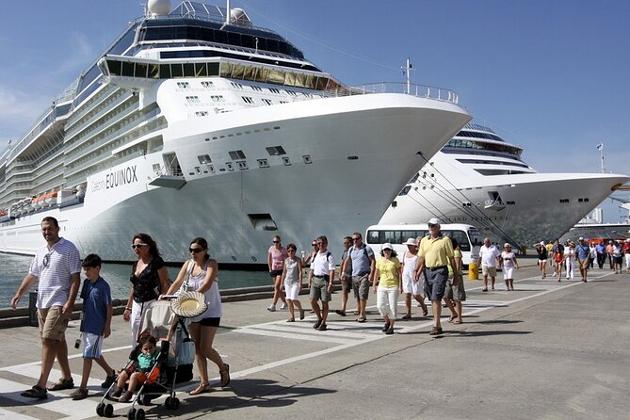Mexico votes to charge cruise ships $42 per passenger for port calls

New Immigration Fee Sparks Concerns in Mexico’s Cruise Industry
Mexico City, Mexico The Mexican Senate has recently approved a controversial immigration fee of US$42 for cruise ship passengers. This decision has ignited significant criticism from the tourism sector, which fears that the new charge could severely impact the nation’s cruise industry, valued at approximately $500 million annually. The fee is set to take effect in 2025 and marks a significant shift in policy, as it removes a previous exemption for cruise passengers who typically remain on board their vessels during port calls.
Impact on Mexico’s Cruise Tourism
The introduction of this fee is particularly concerning for Mexico’s Caribbean coast, especially Cozumel, which is recognized as the world’s busiest cruise port. The National Confederation of Commerce, Service, and Tourism Chambers has expressed alarm over the potential consequences of this new charge. They warn that cruise operators may choose to divert their itineraries to other Caribbean destinations that do not impose such fees. This shift could lead to a substantial decline in the number of visitors to Mexico’s ports, which are vital for local economies.
Octavio de la Torre, president of the federation, stated, “This could result in a significant decrease in visitors.” The cruise industry is a crucial economic driver for many coastal communities, providing jobs and supporting local businesses. If cruise lines opt for more cost-effective ports, the repercussions could be dire for the Mexican economy, particularly in regions that rely heavily on tourism revenue.
Moreover, critics of the fee have raised concerns about the allocation of the revenue generated. Reports indicate that two-thirds of the funds collected from this fee will be directed to the Mexican army, rather than being reinvested into improving port facilities or enhancing tourism infrastructure. This has led to further dissatisfaction among industry stakeholders, who believe that the focus should be on fostering a competitive environment for cruise tourism.
Wärtsilä and Royal Caribbean Group sign Lifecyle Agreement to accelerate sustainability goals
Broader Context and Future Implications
The new immigration fee is part of a larger legislative package that also includes increased airport immigration fees and entry fees for nature reserves. This comprehensive approach aims to generate additional revenue for the government, which is currently facing significant budget deficits. The ruling Morena party has been actively seeking new funding sources to support its ambitious infrastructure projects, many of which are being constructed by the military.
While there is a growing global trend to limit cruise ship activity due to concerns over overtourism, Mexico’s Caribbean coast remains a popular destination for cruise lines. Cozumel alone welcomes around four million passengers each year. Industry representatives argue that the new fee could undermine this vital economic sector, making Mexican ports among the most expensive in the world. The Mexican Association of Shipping Agents has voiced strong opposition, stating that the fee could severely affect the competitiveness of Mexican ports compared to other Caribbean destinations.
As the implementation date approaches, stakeholders in the tourism industry are left grappling with uncertainty. The balance between generating government revenue and maintaining a thriving tourism sector is delicate. The outcome of this new fee will likely shape the future of cruise tourism in Mexico for years to come.
